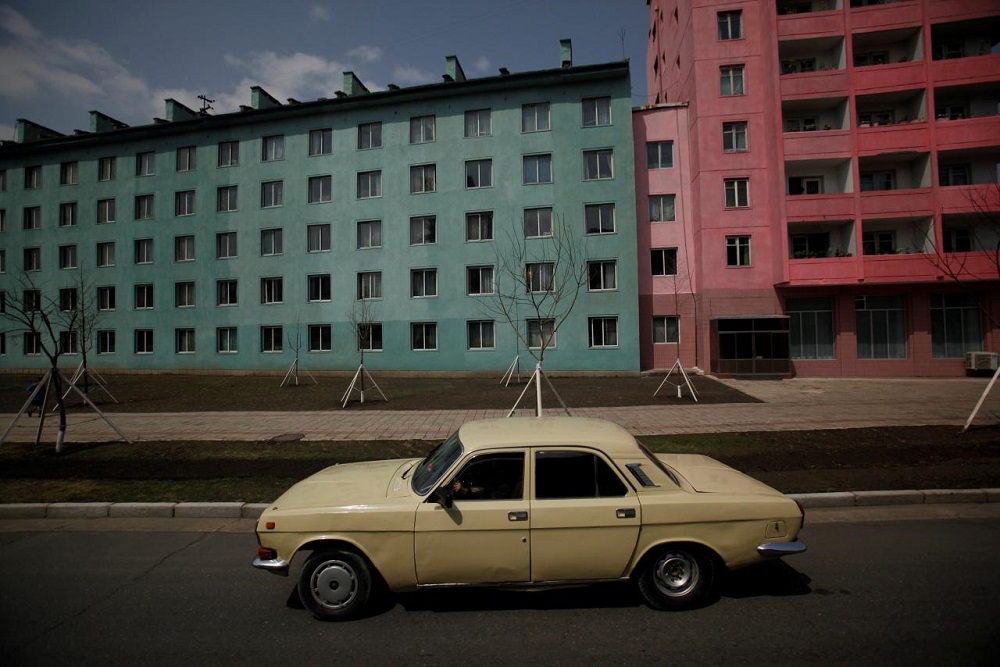Gasoline exports from China to North Korea took a sharp dip in July, which would threaten critical supplies of fuel and force the isolated country to seek alternatives to its main supplier.
The decline, revealed by customs data, is the strongest sign yet that the suspension of sales of the fuel by China’s state oil major CNPC has cut critical supplies to its southern neighbor.
Beijing’s General Administration of Customs said on Wednesday Chinese shipments of gasoline dropped 97 percent from a year ago to just 120 tons of the fuel – worth little more than $100,000. The number was down from 8,262 tons in June.
Monthly fluctuations in the data are not unusual, but this was the fourth-lowest volume on Reuters’ records of customs data going back to January 2010.
Customs data also showed China’s trade with North Korea fell last month as a ban on coal purchases from its isolated neighbor slowed imports amid growing pressure from the United States to rein in Pyongyang’s missile program.
At the end of June, Reuters reported China National Petroleum Corp (CNPC) suspended sales of gasoline and fuel to North Korea over concerns CNPC would not get paid for its goods.
Fuel prices in the country surged following the cut and the measure is still in place, people familiar with the matter say.
Gasoline typically accounts for the bulk of fuel exports to North Korea, but July data showed the biofuel, ethanol, took the top spot with shipments of 4,137 cubic meters, worth $1.9 million.
On Tuesday, US Secretary of State Rex Tillerson commended North Korea for recent restraint in its provocations and said it could point the way to a possible dialogue with the US.
It was rare positive expression from the US toward the authoritarian government in Pyongyang and comes amid a slight easing in recent tensions between the adversaries that had flared after President Donald Trump pledged to answer North Korean aggression with “fire and fury.” North Korea, for its part, had threatened to launch missiles toward the American territory of Guam.
Addressing reporters at the State Department, Tillerson said that North Korea had “demonstrated some level of restraint that we have not seen in the past” by not conducting missile launches or provocative acts since the UN Security Council adopted tough sanctions on August 5.
“We hope that this is the beginning of this signal that we have been looking for, that they are ready to restrain their level of tensions, they’re ready to restrain their provocative acts,” Tillerson said, “and that perhaps we are seeing our pathway to sometime in the near future having some dialogue.”
Tillerson added a caveat.
“We need to see more on their part,” he said, without elaborating.
The UN sanctions were a response to twin tests last month of an intercontinental ballistic missile that may be able to reach parts of the US, heightening concern in Washington that North Korea could soon be able to threaten it with nuclear weapons. It was the latest salvo in the Trump administration’s push to increase economic and diplomatic pressure on Kim Jong Un’s government.
However, the US administration has left the door open to engagement with the North, with Tillerson recently urging it to stop missile tests to show its sincerity. While the two sides have maintained quiet diplomatic contacts in recent months, there has been scant sign that Pyongyang will oblige.
Kim has held off on the North’s supposed plans to fire missiles into waters near Guam that were advertised in state media earlier this month, but his government this week has kept up its harsh criticism of the US over annual military drills conducted with close ally South Korea.
The North regards the drills as preparation for invasion and on Tuesday its military vowed, with customarily tough rhetoric, a “merciless retaliation” against the US Senior US military commanders dismissed calls to pause or downsize the exercises that they view as crucial to countering a clear threat from Pyongyang.
